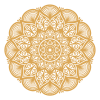Powerful Poem Worth Contemplating….
|
|
|
|
|

|
|
|
|
|

THE HUMAN CONDITION: FREEING THE SPIRIT FROM ITS CELL*
March, 2020
This cartoon beautifully illustrates a central predicament of the human condition: each of us is painfully constrained by underlying assumptions that we do not see. What we do not recognize, we also cannot question or change.
What we are blind to in ourselves is the limiting boundary of our freedom.
The cartoon cage may be interpreted as representing the carapace of “ego identity”: our concepts of who we think we are; who we are afraid we are; what we are invested in having, doing, and being; and who we think we are supposed to be and/or are striving to become. The limiting personal enclosure for each of us is constructed from these autobiographical themes, which derive from how we were related to by family and others during our early development.
In psychological terms, we can further see this bird as trapped in the prison of its own defenses: its need to cling to what is familiar in order to preserve some experience of safety within a familiar world. Though in some sense a cage is safe – think of the crates used for puppy training— this strategy precludes us from discovering the world beyond the cage: the universe of other possibilities.
That people cling to things that make them unhappy may be the source of all of our troubles, but this tendency can be – unfortunately – difficult to change. As I have explained and unpacked elsewhere, problems live in the matrix of our relationships with others**. This is where we can look most effectively if we want to disentangle the knots of feelings, personality, and core beliefs that keep us trapped.
While it may be true, as the title of the Buddhist book says, “No Self, No Problem”***, trying to “let go” in order is seldom of lasting help. “Let it be” is better advice, but this too is easier said than done. Nonetheless, it is useful to recognize that the freedom we seek is actually not outside our actual experience.
In the words of the 20th century mystic and philosopher G.I. Gurjieff,
The more clearly you can see the situation
Feel your way into the situation
Articulate what you feel
Put words to your experience
The more real it becomes
The more real YOU become
*title adapted from paper by Brandschaft, B. et.al. (2010) in Towards an Emancipatory Psychoanalysis, Routledge Press NY**
Schuman, M. (2017) Mindfulness-Informed Relational Psychotherapy and Psychoanalysis: Inquiring Deeply. Routledge Press, NY
***Thubten, A. (2009) No Self No Problem Snow Lion Publications, Ithaca, NY.